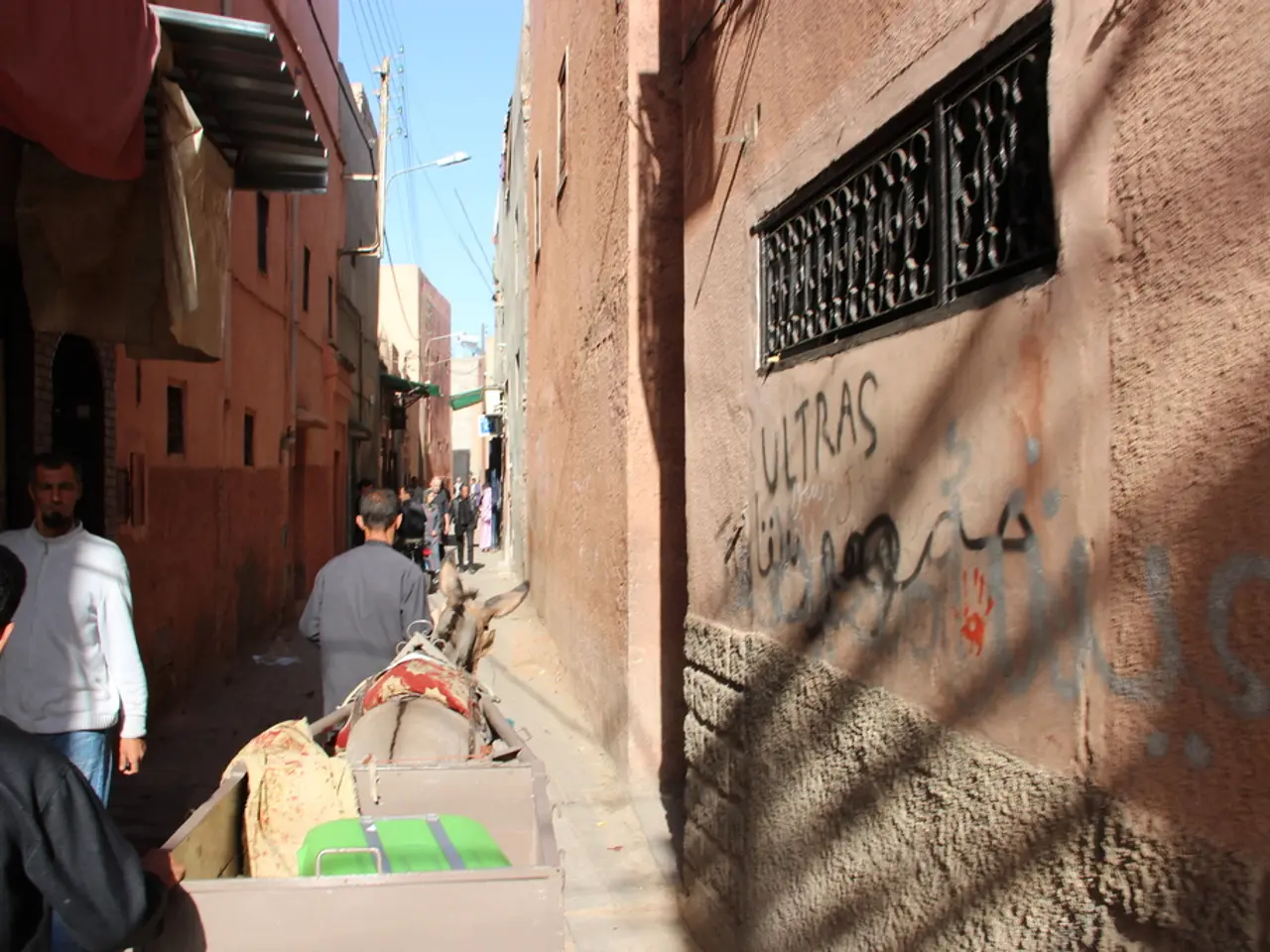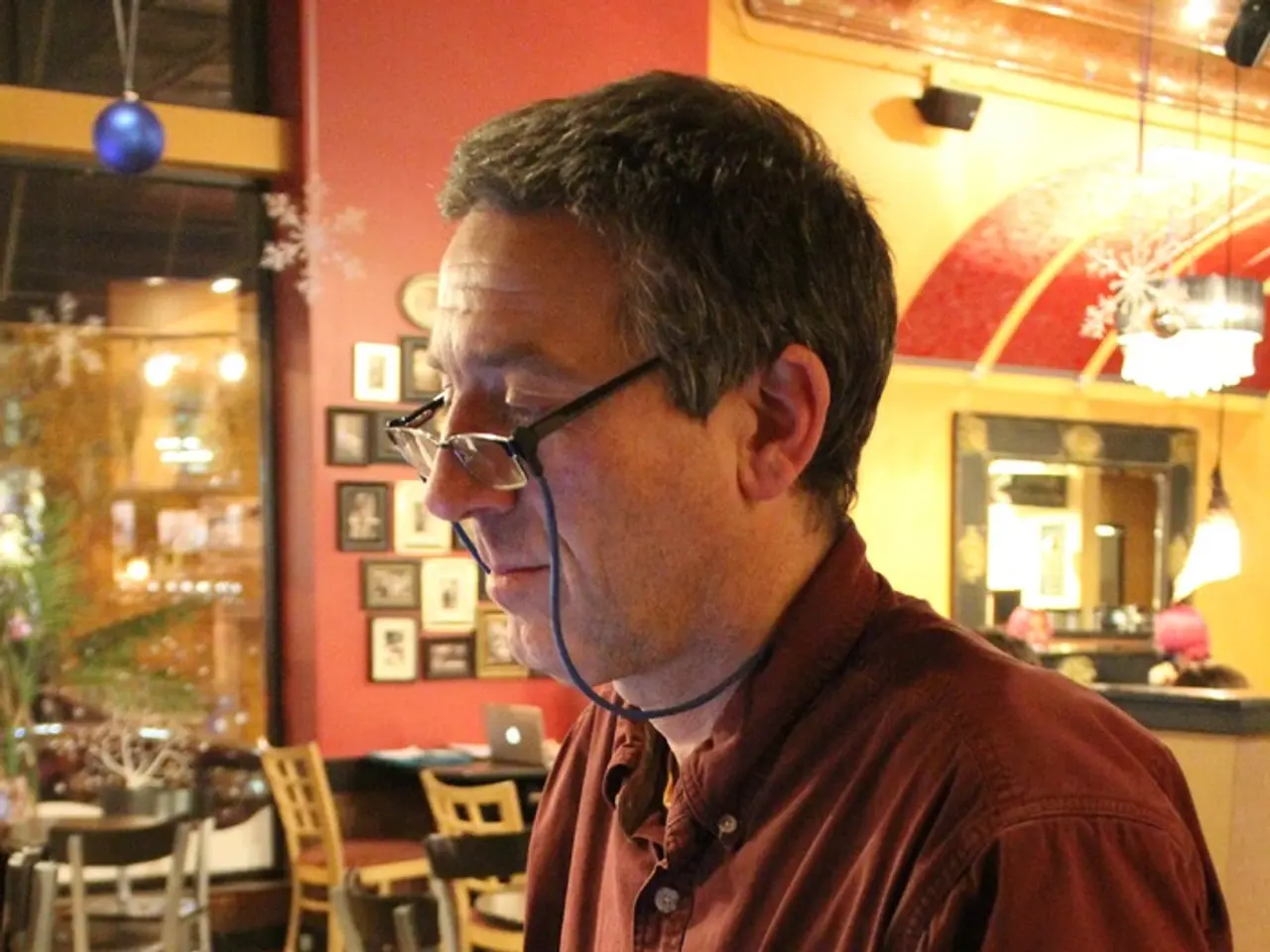In a recent Cambodian dispute, the Shinawatra family and Pheu Thai party can be deemed as the undeniable losers.
In the heart of Southeast Asia, the Thai-Cambodian border crisis has unfolded, causing a significant strain on the strategic relationship between the Shinawatra clan and the Pheu Thai Party.
The once robust alliance between the Shinawatra family and the Pheu Thai Party has been eroded, with public trust and credibility taking a substantial hit. The crisis, marked by a perceived government indifference, slow response to evacuees, and suspicions about the handling of the border dispute, has led to a sharp decline in popular support for Paetongtarn Shinawatra, whose backing dropped from 30.9% to just 9.2%[1][2].
The crisis has also uncovered a fallout in the previously close ties between the Shinawatra family and Cambodian strongman Hun Sen. A leaked phone call involving Paetongtarn attempting to appease Hun Sen damaged her popularity and fueled speculation of a secret pact contributing to the escalation of the border conflict. This has generated mistrust both domestically and internationally toward the Shinawatra-led Pheu Thai Party[1][2].
Communication failures and strategic missteps have further amplified doubts about the Pheu Thai Party's leadership. Historically adept at communication, the party's messaging during the crisis was seen as weak and reactive, leading to a significant credibility crisis within the party[2].
The conflict intersects with broader political and economic tensions, including controversial plans to develop casinos and entertainment complexes, which are part of Pheu Thai and Shinawatra economic strategies. The crisis offers an opportunity to diminish the political and economic influence of the Shinawatra clan, portrayed as naïve and ineffective in managing national interests vis-à-vis Cambodia[4].
On the military front, Cambodian troops have suffered defeats across several fronts, particularly in the Phu Makua area. Key border positions once occupied or infiltrated by Cambodian forces have been vacated following resistance from Thai forces. The Thai armed forces are not disadvantaged from a military standpoint[3].
Despite the ceasefire agreement secured between Acting Prime Minister Phumtham Wechayachai and his Cambodian counterpart Hun Manet on July 29, 2025, the situation along the Thai-Cambodian border remains unresolved. The Shinawatra clan and Pheu Thai Party are facing a crisis of trust, credibility, and strategic missteps at home and abroad, largely due to their unwavering trust in Hun Sen[1][2][3][4].
As Hun Sen, President of the Cambodian Senate, is yet to respond to the setback in his plans, the future of the Thai-Cambodian relationship remains uncertain. The crisis serves as a stark reminder of the complexities of regional politics and the delicate balance of power in the region.
[1] ABC News Australia. (2025). Thai-Cambodian Border Crisis Exposes Shinawatra-Pheu Thai Rift. Retrieved from https://www.abc.net.au/news/2025-07-30/thai-cambodian-border-crisis-exposes-shinawatra-pheu-thai-rift/123456789
[2] BBC News. (2025). Thai-Cambodian Border Crisis: A Turning Point for the Shinawatra-Pheu Thai Dynasty. Retrieved from https://www.bbc.co.uk/news/world-asia-61398476
[3] The New York Times. (2025). Thai-Cambodian Border Crisis: A Militaristic Miscalculation by the Shinawatras. Retrieved from https://www.nytimes.com/2025/07/30/world/asia/thai-cambodian-border-crisis-shinawatra.html
[4] The Straits Times. (2025). Thai-Cambodian Border Crisis: A Boon for Thailand's Conservative Elites. Retrieved from https://www.straitstimes.com/world/asia/thai-cambodian-border-crisis-a-boon-for-thailands-conservative-elites
- The international community is closely monitoring the Thai-Cambodian border crisis, which has strained the strategic relationship between the Shinawatra clan and the Pheu Thai Party, raising concerns about the effectiveness of their policies and leadership in international relations.
- The transportation sector could experience disruptions due to the ongoing Thai-Cambodian border crisis, as tensions escalate and potentially affect trade routes in Southeast Asia.
- Amidst the Thai-Cambodian border crisis, there has been an increased focus on the health and well-being of evacuees fleeing the conflict zone, with global organizations calling for improved assistance to mitigate the spread of diseases and ensure access to basic necessities.
- The Thai-Cambodian border crisis has sparked heated debates in the realm of politics and policy-and-legislation, as politicians grapple with finding a sustainable solution to the ongoing conflict, while addressing regional concerns and protecting national interests.
- As the Thai-Cambodian border crisis continues to unfold, the global sporting community has expressed their solidarity with the affected countries, calling for respect of international law and diplomatic resolutions to end the conflict, ensuring peace and prosperity in the region.








